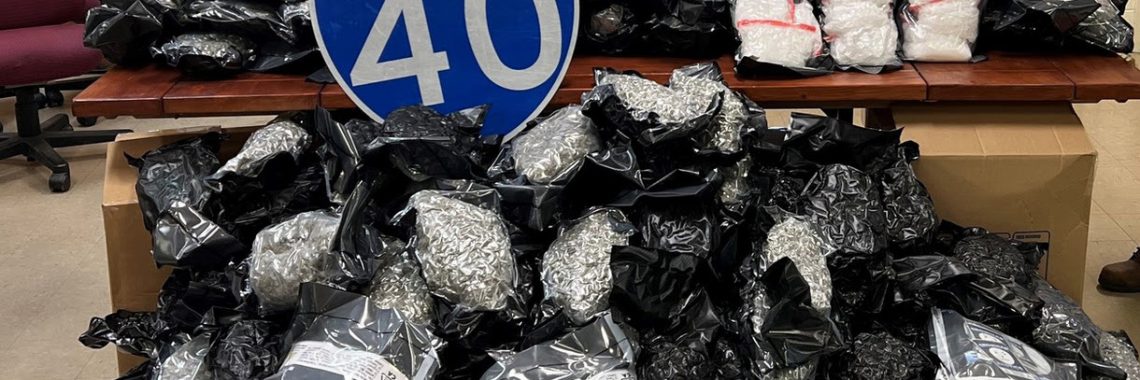Authorities in Arkansas Continue Seizing Illegal Marijuana From Out of State

Authorities in Arkansas continue seizing hundreds of pounds of illegal marijuana that appears to be originating from out of state.
In statements released last week, Arkansas State Policy wrote,
CRITTENDEN COUNTY, Ark.— Arkansas State Police’s (ASP) Interstate Criminal Patrol (ICP) arrested a man from California on drug charges during a Crittenden County traffic stop.
On March 27, 2024, around 5:30 p.m., an ASP Trooper pulled over a tan Freightliner motorhome near the 278-mile marker in Crittenden County due to a traffic violation.
During a search of the motorhome, Troopers discovered several duffle bags containing 298 pounds of illegal marijuana. The driver claimed to be traveling from California to Florida.
ASP took the driver, Antranik Keshisian, 55, a resident of North Hollywood, CA, into custody and transported him to the Crittenden County Detention Center. Keshisian faces multiple charges, including Possession of a Controlled Substance, Possession of Drug Paraphernalia, and Failure to Register his Vehicle with Expired Tags.
The ASP’s Interstate Crime Patrol (ICP) is a specialized unit responsible for enforcing criminal laws and ensuring public safety on the highways and interstates in Arkansas. . . .
On Wednesday, April 3, 2024, at approximately 8:55 a.m., Arkansas State Police (ASP) stopped a white Sprinter van on Interstate 40 eastbound near the 4-mile marker in Crawford County for a traffic violation.
During a search of the vehicle, the Trooper located multiple individual packages of illegal marijuana weighing 257 pounds, 10 pounds of methamphetamine, a Glock handgun, and $2,020.
ASP transported the driver, Javaris Demonte Kelly, 30, from McDonough, GA. to the Crawford County Detention Center, where he was booked and charged with Simultaneous Possession of Drugs and Firearms, Trafficking a Controlled Substance, two counts of Possession of Drug Paraphernalia, and Driving Vehicle with Suspended Registration.
Stories like these serve as a reminder that marijuana’s legalization in other states has actually fueled the black market and the drug cartels rather than weakening them.
For example, California’s Unified Cannabis Enforcement Taskforce seized more than $312 million worth of illegal marijuana it 2023.
Oregon has been inundated by industrial scale marijuana cultivation sites operated illegally by organized crime and drug cartels. Some of these marijuana operations are tied to labor trafficking and violent crime.
Oklahoma authorities describe illicit marijuana as a problem that “plagues” their state.
These reports come as a proposed marijuana amendment is vying for the 2024 ballot in Arkansas — raising serious questions about what could happen in Arkansas if the state goes the same route as California, Oklahoma, Oregon, and others.
Articles appearing on this website are written with the aid of Family Council’s researchers and writers.




